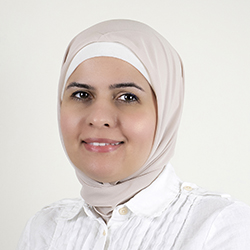What Exactly Is Sickle Cell Disease (SCD)?

Dr. Iman Abisourour
Consultant Internal Medicine Dubai
Sickle cell disease (SCD) is a genetic disease of the red blood cells. This condition is present in affected individuals at birth and causes the production of abnormal hemoglobin. Normally, the hemoglobin protein, which resides inside red blood cells, attaches to oxygen in the lungs and carries it to all parts of the body. Healthy red blood cells are flexible so that they can move through the smallest blood vessels. In sickle cell disease, the hemoglobin is abnormal, causing the red blood cells to be rigid and shaped like a "C" or sickle, the shape from which the disease takes its name. Sickle cells can get stuck and block blood flow, causing pain and infections. Complications of sickle cell disease occur because the sickled cells block blood flow to specific organs. The worst complications include stroke, acute chest syndrome (a condition that lowers the level of oxygen in the blood), organ damage, other disabilities, and in some cases premature death.
Sickle cell disease is more common in certain ethnic groups, including:
- People of African
descent - Hispanic-Americans from Central and South America
- People of Middle Eastern, Asian, Indian, and Mediterranean descent
Signs and symptoms of sickle cell disease can be mild or severe enough to require frequent hospitalizations. They may include:
- Anemia (looking pale)
- Dark urine
- Yellow eyes
- Painful swelling of hands and feet (pain crises)
- Frequent pain episodes
- Stunted growth
- Stroke
There are no standard treatments that can cure sickle cell disease, although the use of stem cell transplants is being researched. Instead, treatments help people manage and live with the disease. The goal of treatment is to relieve pain, prevent infections, minimize organ damage and control complications. This can include medications such as pain relievers as well as hydroxyurea (Hydrea). Adequate hydration is strongly emphasized. Vaccines and antibiotics are used to prevent and treat infections. In more severe cases, blood transfusions maybe required to treat chronic or worsening anaemia.
